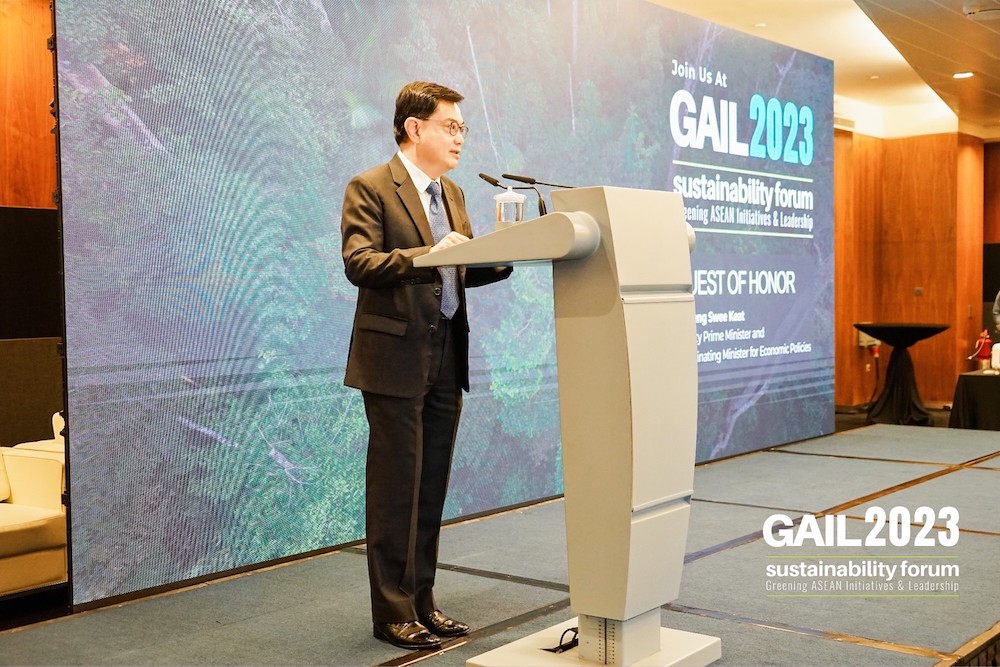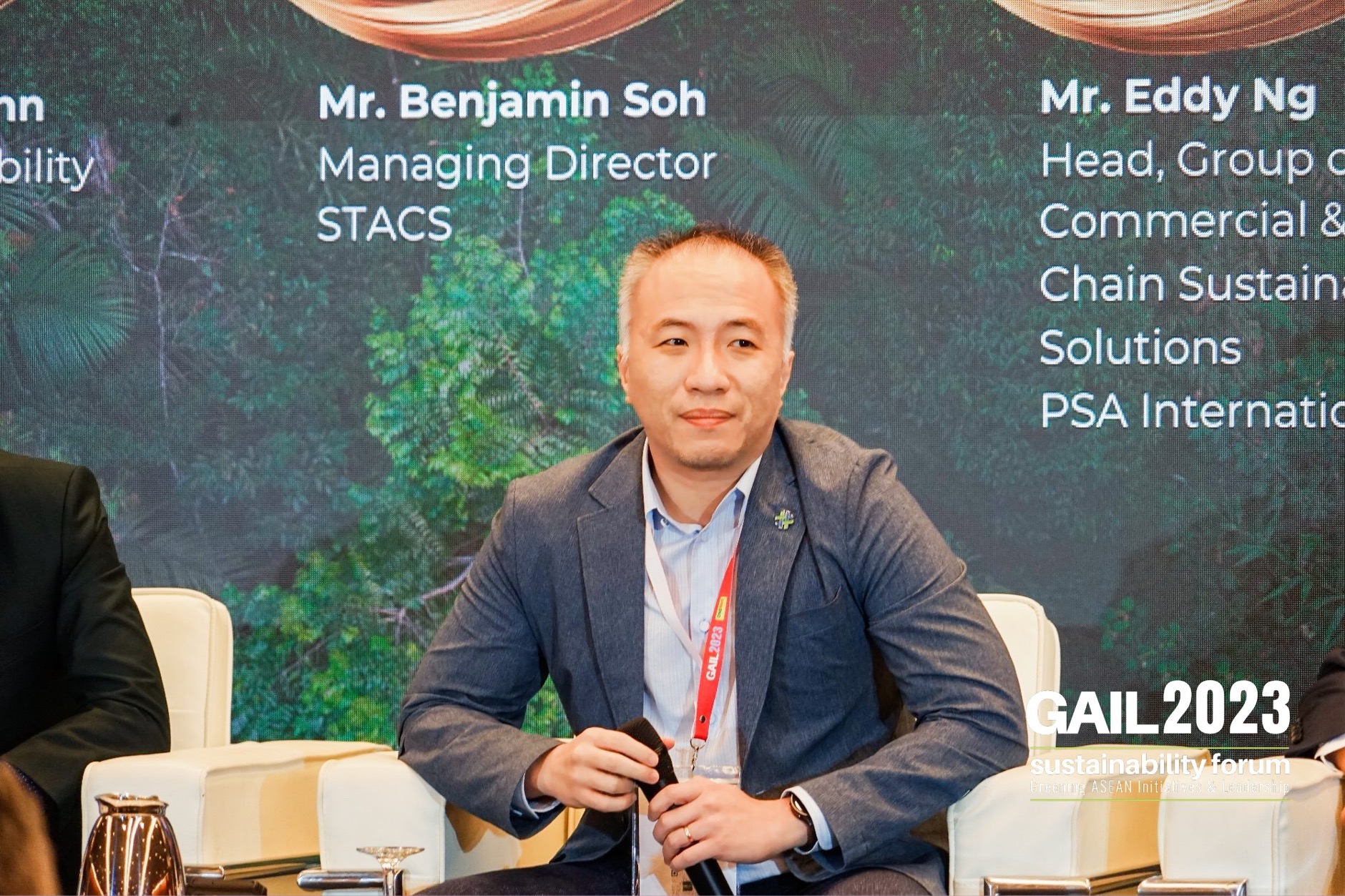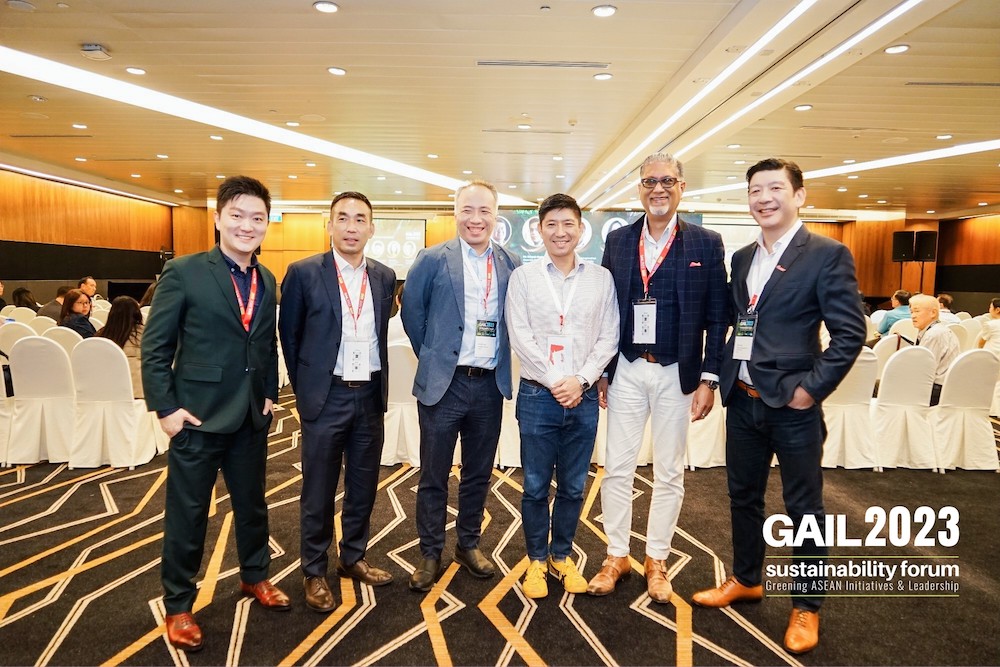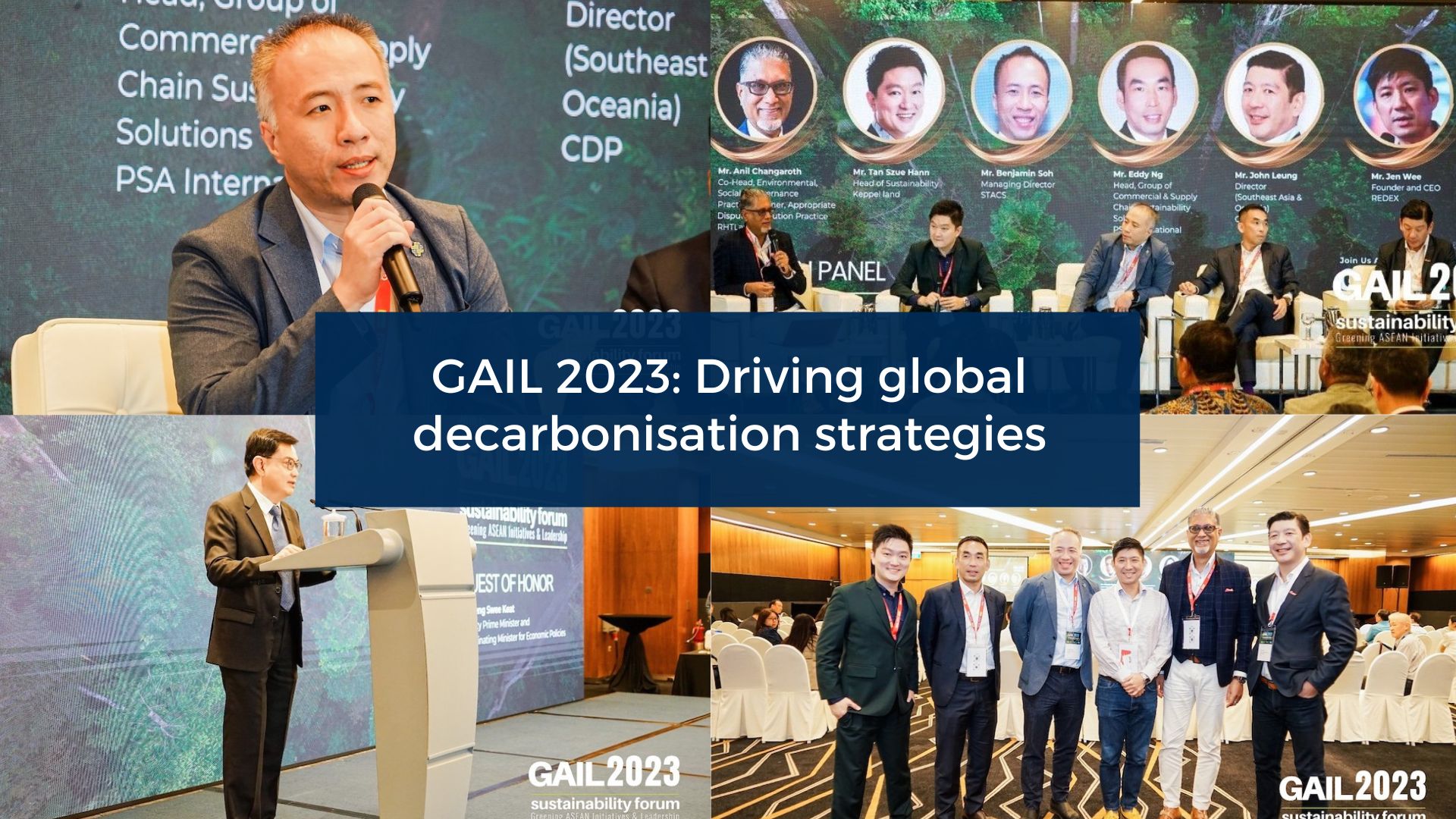The first half of the year concluded with a strong emphasis on mandatory esg disclosures and it’s now imperative that driving sustainability for businesses should be the next move. We are now only two months away from COP28 in Dubai, the annual United Nations climate change conference that brings together world leaders from government, business, and NGOs.
As we gear up for COP, we gathered in Singapore at the GAIL 2023 sustainability forum on greening Asean initiatives and leadership to discuss the state of progress, which included a keynote by Deputy Prime Minister Heng Swee Keat who was the guest of honour.
The forum aims to gather relevant expertise, knowledge, and practical measures to enable Asean companies to respond to the region’s growing call for sustainable development, encouraging business to go above and beyond in their efforts to champion sustainable development.
Rewarding and recognising businesses alongside their industry peers is a key part of the GAIL platform, and is why STACS was honoured to be invited as a speaker alongside other leading green companies based in Singapore with operations across the region.
Our Founder & Managing Director, Benjamin Soh, joined a panel of experts to look at issues around how industry practitioners are accelerating decarbonisation, the challenges of making real change and how this impacts the business model strategy, as well as partnerships that need to be built.
It also examined steps governmental agencies are taking to facilitate industry stakeholders scale the deployment of low-carbon decarbonisation technologies, and tools that companies can adopt to capture, measure, and use data in the pursuit of decarbonisation.
Scaling ESG breakthroughs for impact
In the morning session, DPM Heng outlined four ways to steward a more sustainable future for Asean and the world: “To be effective and responsible stewards requires taking an all-hands-on-deck approach to sustainability, with the public, private, and people sectors each playing our part and working together.”

“Businesses are increasingly setting out their own net-zero targets to support national sustainability goals… As environmental, social and governance (ESG) metrics gain greater prominence in investment and risk assessments, corporates will need to clearly articulate their core principles and metrics.”
He added: “Such frameworks give businesses a common base understanding from which to map out their sustainability strategies, assess the progress they have made over time, and redeploy resources and expertise if necessary.”
Asean will need an estimated US$3.1 trillion in infrastructure investment alone between 2023 and 2030 to sustain economic growth, reduce poverty, and respond to climate change.
“The private sector and philanthropies can therefore help to unlock new green-transition opportunities by crowding in private and other forms of capital to augment public expenditure… Asean member states should invest in R&D and build closer cross-border scientific and research collaborations to harness one another’s strengths.”
He concluded: “As a region, there is great potential for any new breakthroughs to be scaled up to achieve impact.”
Transition to standardised ESG accounting
In the post-lunch session, the panel looked at how sustainability for businesses can best drive global decarbonisation, kicking off with Benjamin as one of the panelists alongside moderator Anil Changaroth (Partner at RHTLaw Asia).
Fellow panelists Eddy Ng (Head of Group Commercial & Supply Chain Sustainability Solutions at PSA International), Szue Hann Tan (Head of Sustainability and Deputy General Manager of Sustainable Urban Renewal at Keppel Land), Jen Wee Kang (Founder and CEO of REDEX), and John Leung (Director for Southeast Asia and Oceania at CDP).
The half-hour panel covered a lot of ground, with insights on challenges and opportunities from each panelist and explanations of how each of their businesses is helping to drive decarbonisation.

Benjamin was keen to stress the importance of approaching decarbonisation as a transition rather than a simple on-off switch (between brown and green there are 50 shades, as he likes to say).
“When we talk about decarbonisation, one other word to replace that is transition. We are hearing about the transition of energy, the transition of business processes or practices, and the last part which is the transition of disclosure and data. For example, CDP is a leader that has been around for many years in this area.”
“In the short – not long – term, data disclosure for environmental practices will become more and more structured, just like financial accounting has been. Fifty or 70 years ago, the financial world may not have been as mature, but today everybody reporting financial statements has very structured ways of doing it, even if you’re an SME or mom-and-pop shop,” he said.
These universal standards, software, and consultants like RHT in the traditional accounting space represent the end of a long transition process. ESG accounting and disclosures is not yet there, but the transition is well underway.
“The world of accounting has normalised and that’s what we believe will happen with ESG disclosure data. Practices will evolve accordingly. Having said that, there are a lot of tailwinds that are supporting us. For example, the ISSB launched new standards last month, and all of this is being merged into global standards that are tightly integrated with financial reporting,” Benjamin said.
The key will be for more businesses, especially SMEs who are not yet required by regulators to do ESG disclosures in the same way that listed companies are, to learn these standards and scale up ways to hit ESG targets and metrics.
Technology will play an important role in this transition, helping to ensure we are dealing with verifiable data at an ecosystem level.

Simplifying Sustainability for Businesses with the ESBN Asia-Pacific Green Deal Digital Assessment
While there are already a lot of government, regulator, and central bank-led ESG initiatives, everyone in the economy needs to play a role in bringing it all together to drive decarbonisation.
Corporates need to find ways to decarbonise their supply chain and scope 3 emissions. Asia plays a pivotal role in the global supply chain, accounting for over 45% of the global economy and more than 96% are SMEs. While there is an increasing trend of ESG awareness and requirements in Asia today, many companies, especially SMEs, are lacking the expertise and resources to start.
STACS has partnered with the ESCAP Sustainable Business Network (ESBN) committee to launch the ESBN Asia-Pacific Green Deal Digital Assessment that is free for all companies and SMEs across Asia to sign up and complete a simplified and guided assessment toa attain the ESBN Green Deal Badge. Available in multiple languages from Thai, Vietnamese, Chinese, to Indonesian, the program aims to lower the barriers to sustainability and empower businesses across Asia to kickstart their ESG data reporting and decarbonisation journey.
Learn more and sign up to attain the ESBN Green Deal Badge:
https://stacs.io/esbn-apac-green-deal
View the full list of ESBN Green Deal Achievers:
https://esgpedia.io/esbn-green-deal-badge-achievers/
The end result looks like this: the SME selling to the large corporation, being financed from the financial sector, with everything interlinked by verifiable, transparent ESG data to reach that decarbonised future.





